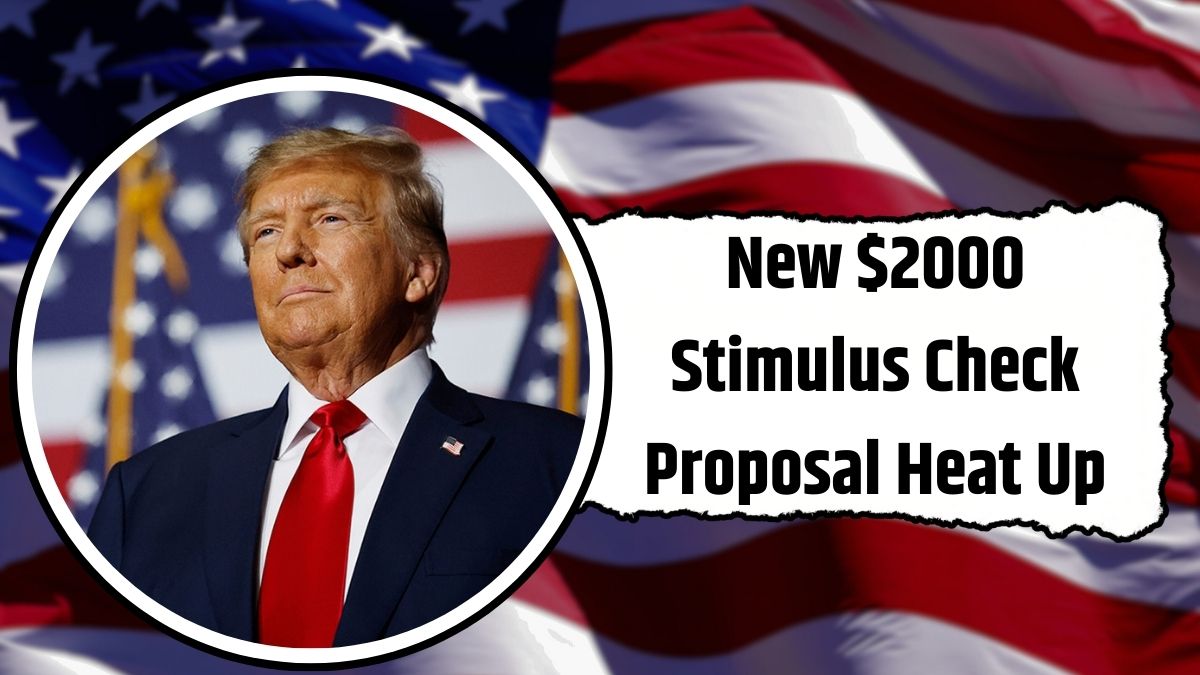With inflation still running high and millions of Americans struggling to manage basic expenses, discussions surrounding a fourth federal stimulus check have reignited in Washington as of June 2025. The proposed amount: $2,000 per eligible adult—a potential lifeline for households hit hardest by persistent price hikes, stagnant wages, and economic uncertainty.
Although no official legislation has passed, growing political pressure and continued financial strain are keeping the proposal at the forefront of public and congressional debate. Here’s everything currently known about the fourth stimulus check effort, including who might qualify, how much it could be, and when payments might arrive if approved.
Who Could Qualify for the Fourth Stimulus Check?
If Congress moves forward with another round of direct payments, it’s expected the eligibility criteria will mirror past stimulus efforts. That means individuals and families with moderate to low incomes would be the primary beneficiaries.
Here’s a likely breakdown of eligibility:
| Filing Status | Annual Income Limit |
|---|---|
| Single filer | Under $75,000 |
| Married couple (joint) | Under $150,000 |
| Head of Household | Under $112,500 |
Additionally:
- Parents and guardians may receive additional payments for dependents
- Social Security, SSDI, and SSI recipients are expected to qualify, as they did in previous rounds
The IRS would oversee distribution, using the latest tax filings or federal benefit data to determine eligibility.
Why Is a Fourth Stimulus Being Considered Now?
Several key economic indicators have revived momentum for direct cash assistance, despite no formal bill passing yet. The reasons behind the renewed urgency include:
Persistent Inflation
Though inflation has cooled from record highs in 2022, costs for essential goods and services remain elevated—especially in categories like:
- Groceries
- Rent
- Transportation
- Healthcare
Many households report that wages and COLA increases have not kept up with real-world expenses.
Disproportionate Impact on Vulnerable Populations
Low-income earners, seniors, and disabled Americans continue to face disproportionate hardship. Despite Social Security’s recent Cost-of-Living Adjustment (COLA), beneficiaries often struggle to cover rising medical, food, and utility costs.
Decline in Consumer Spending
Retail sales and small business revenues have weakened, raising concerns about slowing economic growth. Stimulus checks are viewed by some lawmakers as a way to stimulate local economies through increased household spending.
How Much Would the Fourth Stimulus Payment Be?
Current proposals suggest:
- $2,000 per eligible adult
- $500 to $1,000 per dependent (amount may vary)
These figures are consistent with prior stimulus packages, though final amounts would depend on what Congress ultimately approves.
Until official legislation is introduced and passed, these numbers remain proposals only, not guarantees.
When Could Americans Receive the Next Stimulus Check?
As of June 2025, no stimulus check legislation has passed. However, if a bill were approved later in 2025, the distribution timeline would likely follow a familiar path:
- Late 2025 to early 2026: Estimated payment window, assuming the bill passes in the second half of the year
- Direct deposit recipients would receive payments first
- Paper checks or debit cards would follow in subsequent weeks
The IRS “Get My Payment” tool—previously used for tracking payments—may also be reactivated if legislation is passed.
Will Social Security, SSI, and SSDI Recipients Be Included?
Yes—if the proposal becomes law, recipients of federal benefits such as Social Security, SSDI, and SSI are expected to qualify automatically, as they did in previous stimulus rounds.
Payments for these groups would likely be issued using:
- Existing bank account information on file with the Social Security Administration
- Direct deposit or Direct Express debit cards
- Paper checks for those without digital payment access
Is the $2,000 Stimulus Taxable?
No. Like past stimulus checks, the proposed $2,000 payment would be classified as non-taxable income. That means:
- It won’t need to be reported on your tax return
- It won’t reduce eligibility for other federal assistance programs
- You don’t pay taxes on it now or later
However, recipients should keep a record of the payment for tracking and confirmation purposes.
Other Financial Assistance Programs Under Consideration
Even if the $2,000 stimulus proposal doesn’t pass, lawmakers are also reviewing other forms of targeted support. These may offer relief to specific groups, such as families with children, renters, or low-income earners.
| Relief Program | Description |
|---|---|
| Expanded Child Tax Credit | Regular cash payments for parents/guardians with kids |
| Emergency SNAP Boosts | Temporary increase in monthly food benefits |
| Utility Bill Assistance | Help paying electricity, gas, and water bills (LIHEAP) |
| Rent Relief & Vouchers | Federal/state programs to prevent housing instability |
| Unemployment Extensions | Additional weeks of aid for job seekers |
These programs may prove more politically feasible than a universal stimulus, depending on budget negotiations and congressional priorities.
How to Prepare for a Possible Fourth Stimulus Check
While the legislation is still pending, it’s a good idea to prepare now, in case Congress approves the payment later in the year:
- File your 2024 tax return as soon as possible
- Enroll in direct deposit through the IRS or Social Security
- Monitor the IRS.gov website and government press releases for official updates
- Beware of scams or phishing sites claiming to offer early access or registration
Preparation now can speed up payment delivery if the fourth stimulus becomes law.
FAQs
Q1. How much could the fourth stimulus payment be worth?
Most proposals recommend $2,000 per eligible adult, with extra payments for dependents.
Q2. Has it been approved yet?
No. As of June 2025, there is no law in place, but proposals are gaining momentum.
Q3. Will I qualify if I receive Social Security or SSI?
If passed, yes—these groups were included in all previous rounds.
Q4. When might payments be sent out?
Late 2025 to early 2026, depending on when (or if) the bill is passed.
Q5. What if no stimulus check is approved?
Other forms of aid like Child Tax Credit, SNAP, and rental relief may be expanded instead.










